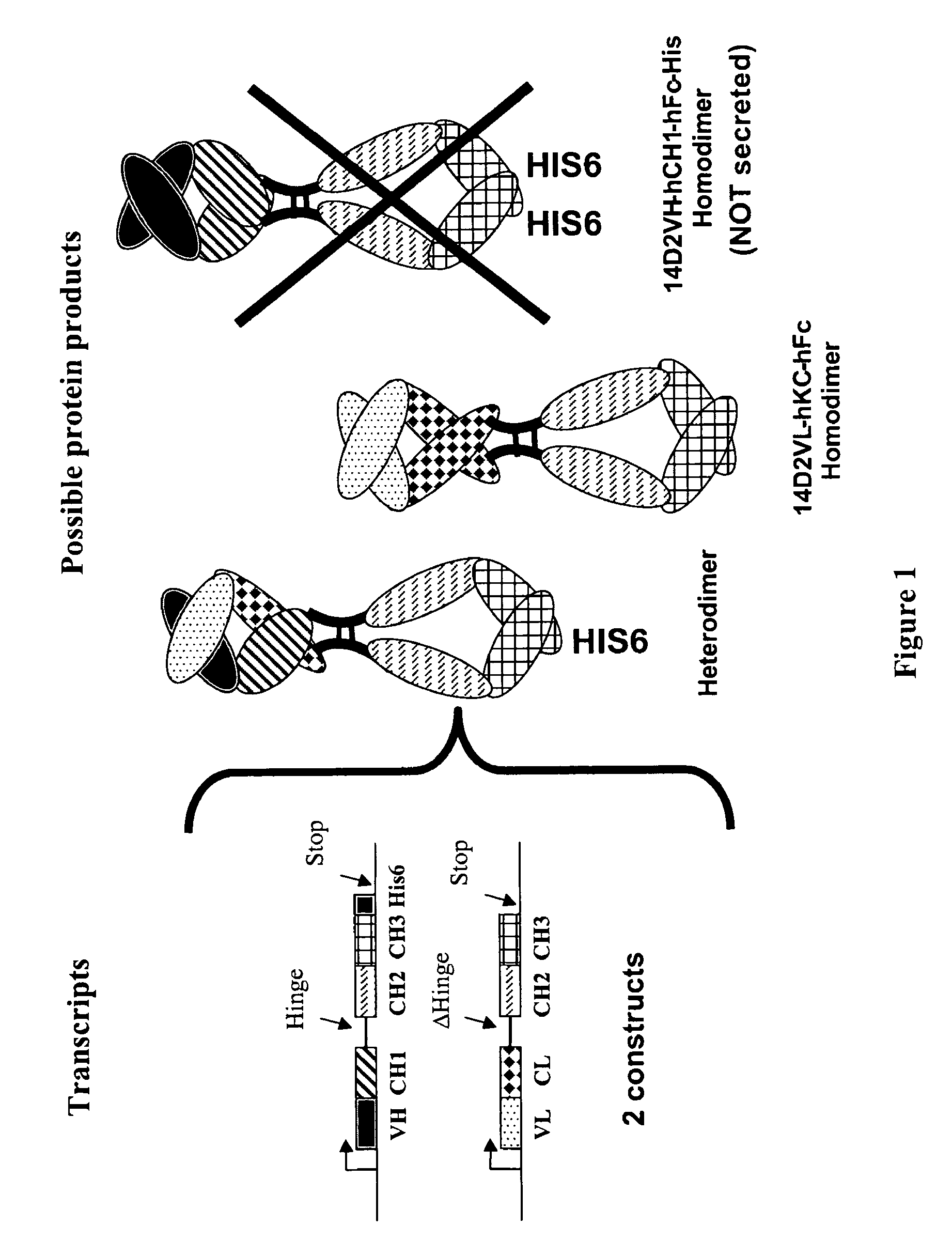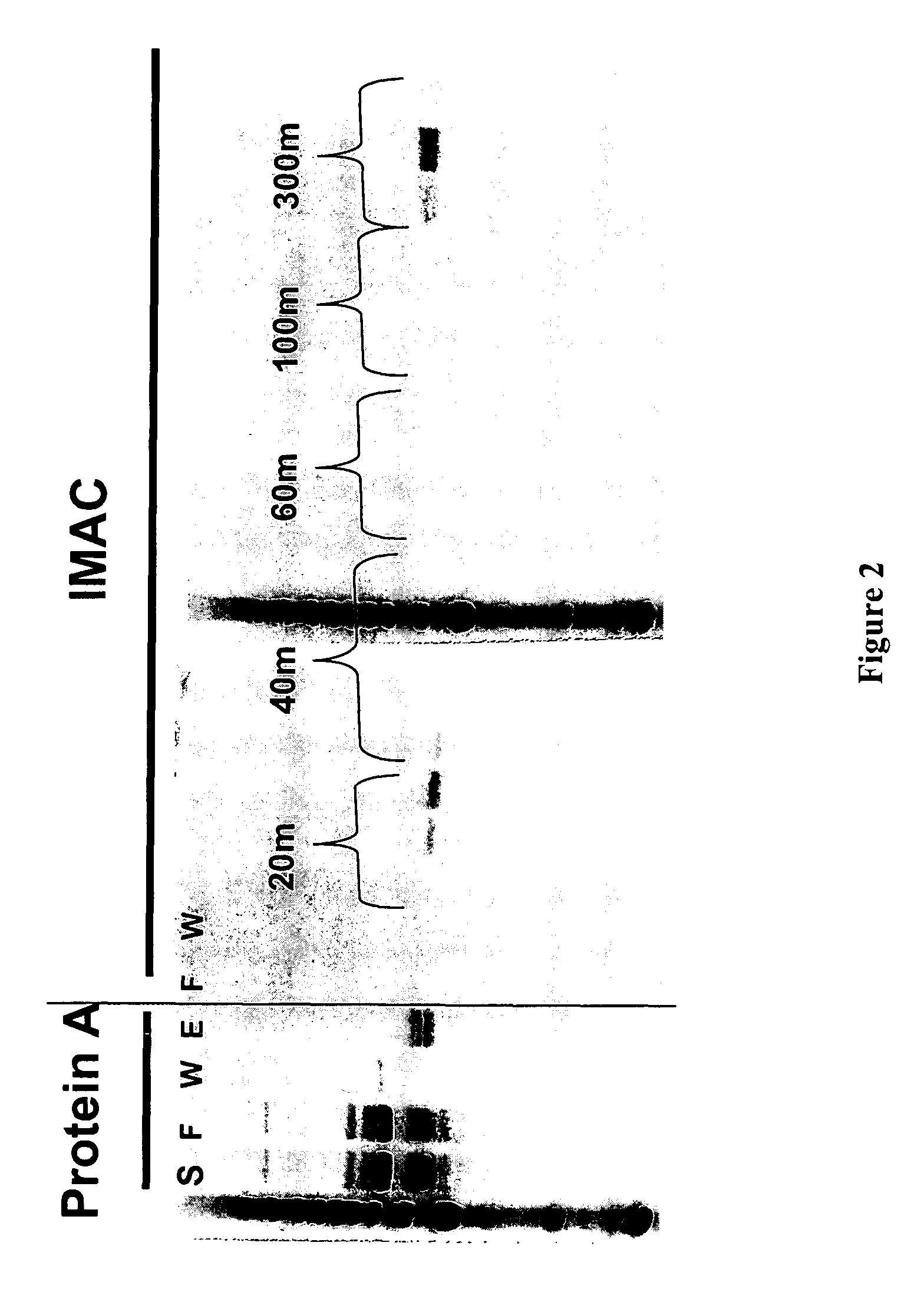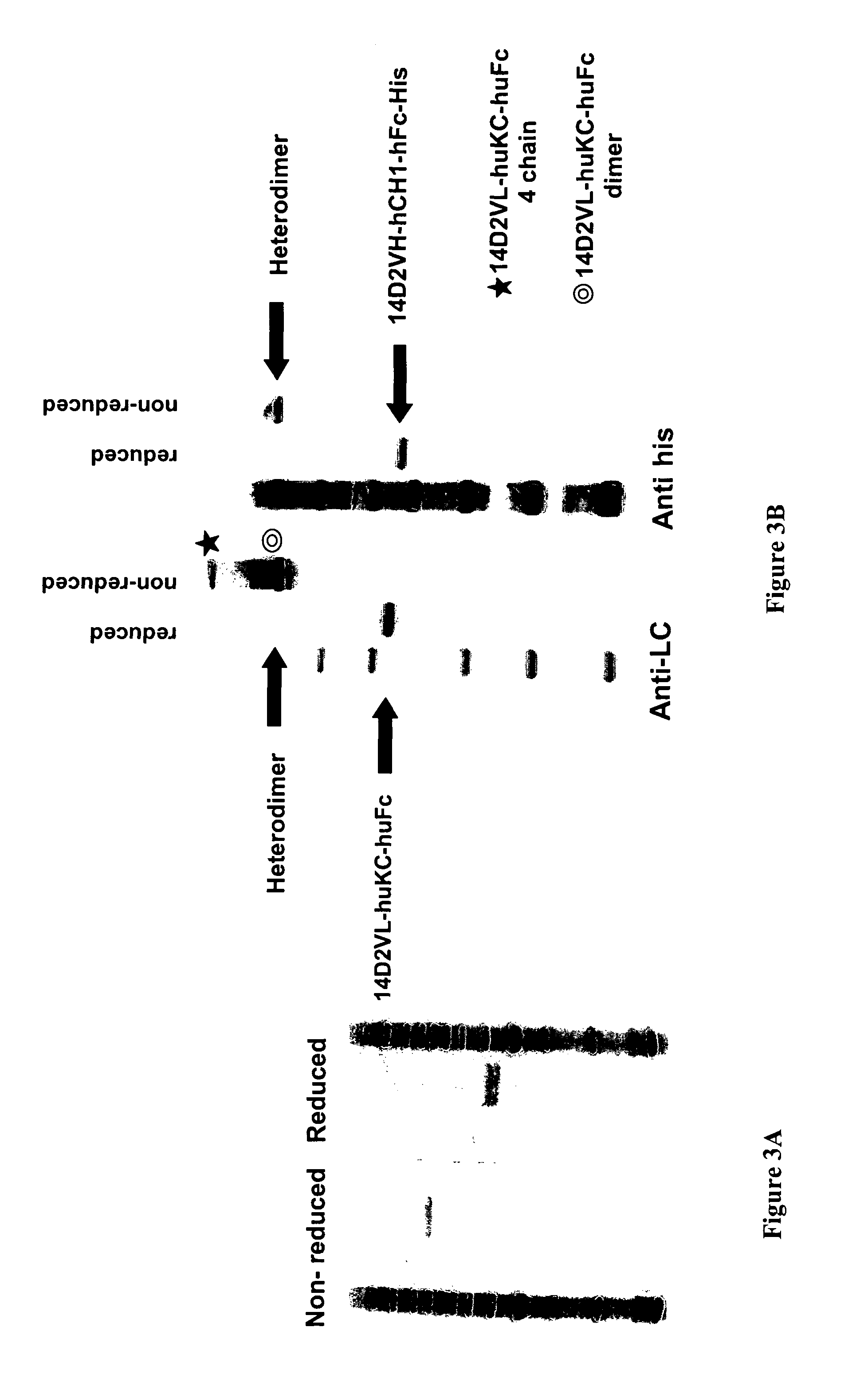Methods for generating monovalent IgG
a monovalent antibody and igg technology, applied in the field of monovalent igg generation, can solve the problems of destroying targets, monovalent form of the same antibody, such as fab fragment, typically failing to work as an agonistic antibody, and inability to activate cell surface receptors by antibodies crosslinking,
- Summary
- Abstract
- Description
- Claims
- Application Information
AI Technical Summary
Benefits of technology
Problems solved by technology
Method used
Image
Examples
examples
Construction of Anti-p55 Monovalent Antibody
[0104]A hamster anti-p55TNFR antibody, designated as 14D2, was generated using the mouse p55TNFR as immunogen. The variable heavy chain (VH) and the variable light chain (VL) were cloned from total RNA obtained from the 14D2 hybridoma cells using degenerate primers to the 5′-end sequence, which was deduced from the N-terminal sequence of purified 14D2 as determined by Edman analysis, and 3′ primers complementary to sequence encoding the CH1 domain of the hamster IgG1's heavy chain. The 14D2 VL-hu light chain K fusion was made by amplifying the 14D2 VL with the following primers:
[0105]
5′-CTGGTGCTAGCGATATAGTGATGTCGCAG(SEQ ID NO: 1)and5′-CAGCCACCGTACGTTTGATTTCCAGCTTGG.(SEQ ID NO: 2)
[0106]The amplicon was subcloned into a vector containing the sequence of the hu K light chain constant sequence. The 14D2VL-hu κLC-huIgG1Fc fusion was spliced together by overlap extension using the following primers:
[0107]
(SEQ ID NO: 3)5′-CGTTTAAACGTCGACGTTTAAACG...
PUM
| Property | Measurement | Unit |
|---|---|---|
| particle size | aaaaa | aaaaa |
| body weight | aaaaa | aaaaa |
| total volume | aaaaa | aaaaa |
Abstract
Description
Claims
Application Information
 Login to View More
Login to View More - R&D
- Intellectual Property
- Life Sciences
- Materials
- Tech Scout
- Unparalleled Data Quality
- Higher Quality Content
- 60% Fewer Hallucinations
Browse by: Latest US Patents, China's latest patents, Technical Efficacy Thesaurus, Application Domain, Technology Topic, Popular Technical Reports.
© 2025 PatSnap. All rights reserved.Legal|Privacy policy|Modern Slavery Act Transparency Statement|Sitemap|About US| Contact US: help@patsnap.com



